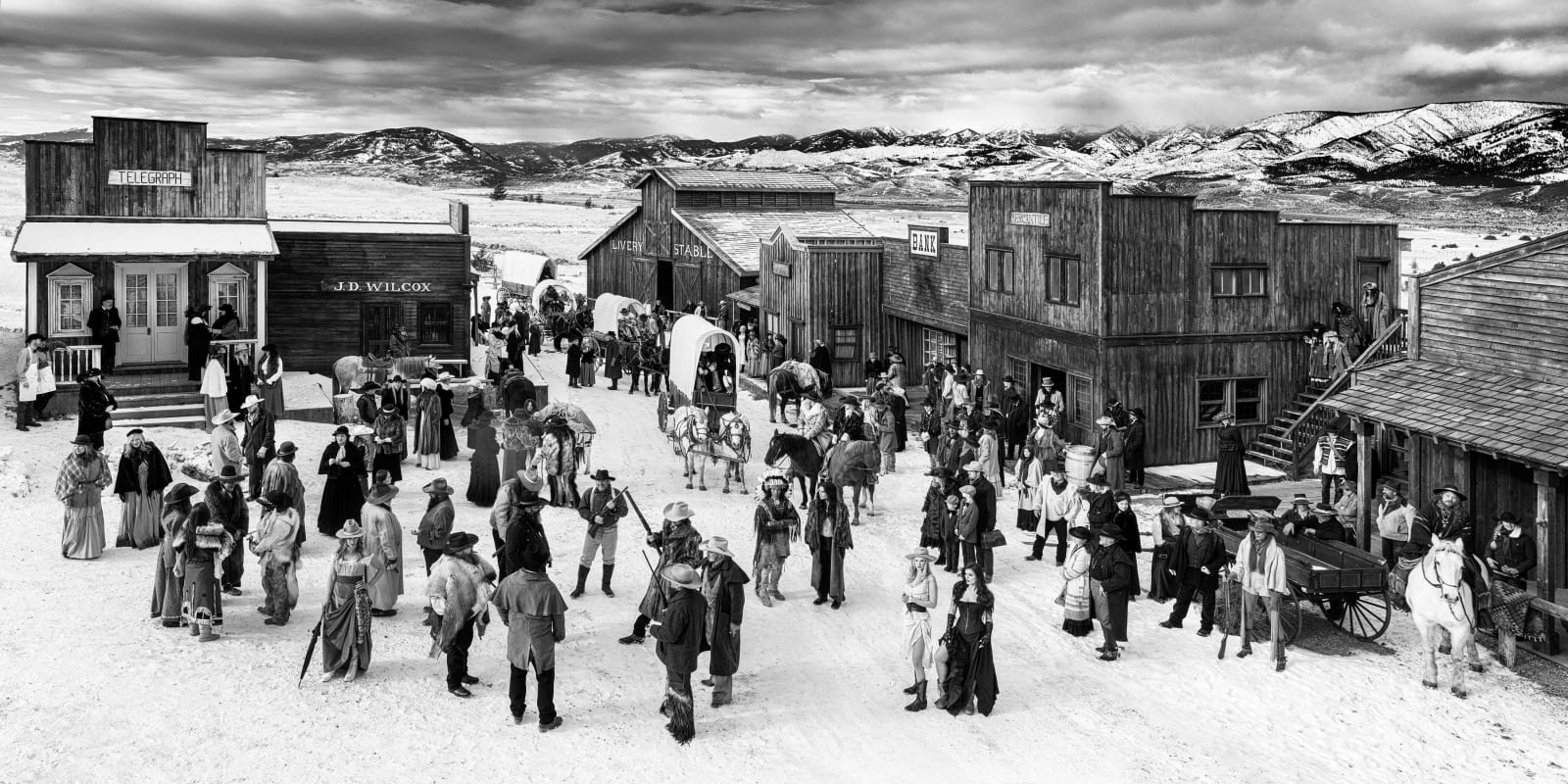David Yarrow
1895
Archival Pigment Print
Large (framed): 65x115
Standard (framed): 52x89
Ed of 12
Standard (framed): 52x89
Ed of 12
I am drawn to historic pictures of the American West; indeed, I have been far too indulgent in building my own collection of Edward Curtis images. He was such a...
I am drawn to historic pictures of the American West; indeed, I have been far too indulgent in building my own collection of Edward Curtis images. He was such a tough and resourceful operator and his body of work is humbling for all those who now work in the same field.
Photographs of frontier or gold rush towns from the late 19th century have had a particular draw on me. There is so much information to take in, despite cameras being in their infancy. They offer a much-needed insight into daily life of nation
building. For some time, I have aspired to take a cinematic revisionist still of a wild west town and when we found this location in Western Montana, I was like a dog with a bone; I could not let go. My goal was not just to photograph the town and its people, but to convey a sense of the final frontier. This required an elevated position to offer contextuality and enable me to tell a story of a community on the edge. The “push west” is a good hunting ground for storytellers because of the topography that hosted it and the characters that lived it. They add layers to any narrative as do the winter conditions that often dressed the stage. I knew that I wanted to make this picture when there was snow everywhere - there was no
other way. There are many people to thank for helping me pull this off - all the extras, the costume houses and my
production team. Photography like this is not a singular trade, it is a big team effort and those around me made my job relatively easy. I can look at this picture for a long time and that was always the intent.
Photographs of frontier or gold rush towns from the late 19th century have had a particular draw on me. There is so much information to take in, despite cameras being in their infancy. They offer a much-needed insight into daily life of nation
building. For some time, I have aspired to take a cinematic revisionist still of a wild west town and when we found this location in Western Montana, I was like a dog with a bone; I could not let go. My goal was not just to photograph the town and its people, but to convey a sense of the final frontier. This required an elevated position to offer contextuality and enable me to tell a story of a community on the edge. The “push west” is a good hunting ground for storytellers because of the topography that hosted it and the characters that lived it. They add layers to any narrative as do the winter conditions that often dressed the stage. I knew that I wanted to make this picture when there was snow everywhere - there was no
other way. There are many people to thank for helping me pull this off - all the extras, the costume houses and my
production team. Photography like this is not a singular trade, it is a big team effort and those around me made my job relatively easy. I can look at this picture for a long time and that was always the intent.
